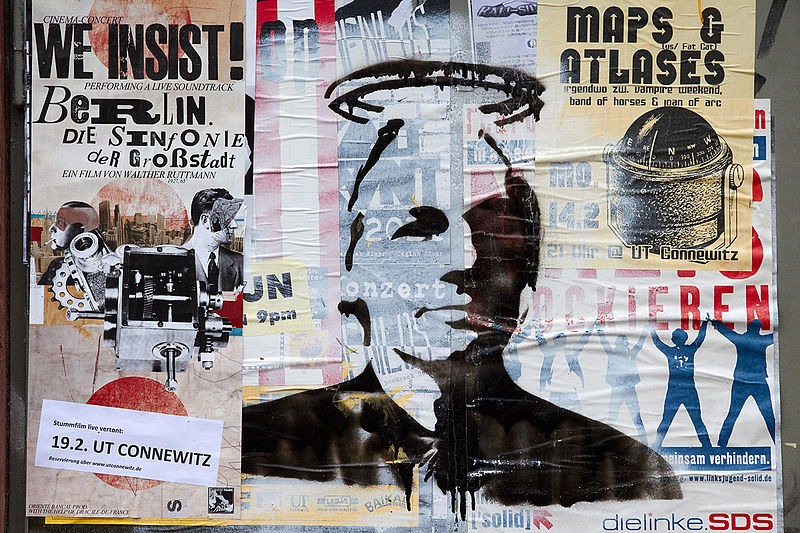
It’s been almost a week since Julian Assange had his asylum revoked by the Ecuadorian government. As a result, he was arrested by the Metropolitan police for his failure to appear in court in June 2012 regarding allegations made by two Swedish women which led to Swedish authorities initiating an investigation into whether Assange had committed sexual molestation, coercion and rape.
Assange now faces potential extradition to the United States, where he awaits a federal indictment for “conspiring to commit computer intrusions” with Chelsea Manning in her acquisition of the Iraq and Afghan War Logs. The indictment was filed last year; Chelsea Manning has once more been in prison since March of this year for refusing to testify against Assange in a grand jury hearing. The Swedish authorities are considering reopening the investigation into rape, the prospect of pursuing other charges now having exceeded the statute of limitations.
In the intervening days since the arrest, we’ve seen how ill-equipped social media is for having a serious discussion about matters relating to Julian Assange. The same lobby journalists who’d call up Amnesty International if someone called them a dingbat are happily fnarr-fnarring over memes of the WikiLeaks founder being dragged out of the Ecuadorian embassy by police. Meanwhile, there is near silence on Chelsea Manning’s continued incarceration.
Opinion has tended to be polarised between two camps: those who think that Assange is an absurdity and an abuser undeserving of public support against extradition to the US and those who consider any attempt to charge and prosecute Assange with any offence, in any country, an extension of his persecution by the American empire.
It’s this latter issue that I think raises the most pressing questions for the left as it considers the limits of solidarity. I was struck by the number of responses I’d seen on Twitter suggesting that Assange must be innocent of the pending Sweden charges (a smear concocted in cahoots with American security forces), that the case itself has been dismissed as fabrication by the women who brought the allegations. Whatever your opinion is on the former, the latter is false. Both women, since the arrest, have reaffirmed their wish for Julian Assange to be held accountable for alleged abusive behaviour.
Solidarity is an easy word to say but a more difficult one to practise. In the case of Assange, an anti-imperialist politic is seemingly pitted against a feminist one. There are all too many people on the left who would have you believe that a defence of WikiLeaks’ role in exposing war crimes and other grotesque abuses of power means the utter rejection of the idea that Assange has a case to answer in Sweden. That men who are heroes cannot possibly be creeps. That the extraordinary circumstances of Assange’s emergence into the public eye require an extraordinary explanation for a depressingly commonplace crime. And these narratives serve to reinforce the central pillar of rape culture: it’s always easier to imagine reasons for a woman to be lying then it is to imagine reasons for a man to be guilty.
There’s a difference between ‘solidarity with’ and ‘solidarity against’. It is in this second sense that anyone who considers themselves to be on the side of civil liberties must stand against attempts to extradite Julian Assange to the US and uphold the US-UK extradition treaty which holds that an individual may not be extradited for a political offence.
What Assange stands accused of in the federal indictment – encouraging a source to divulge more information, using encrypted messaging – are essential and legitimate journalistic practices. But it is in the first sense that anyone who considers themselves as on the side of justice must stand with a woman who’s been waiting nearly a decade for her day in court. And that means supporting Assange’s extradition to Sweden, on the condition that onward extradition to the US is blocked by Swedish and British authorities.
It’s the only way in which some measure of resolution can be delivered – either for Assange to clear his name or be held criminally responsible. The WikiLeaks revelations were undoubtedly in the public interest. But the silencing of women’s voices cannot and should not be considered a price worth paying for the political good.
9 April 2020: This article was updated to reflect the role of the Swedish authorities in investigating potential charges against Assange.